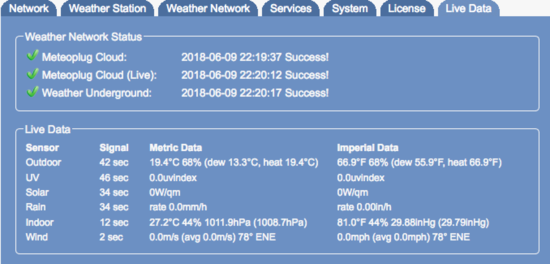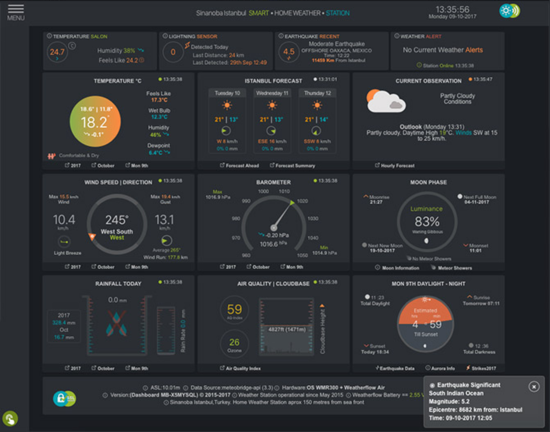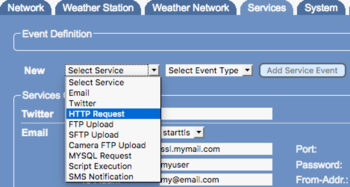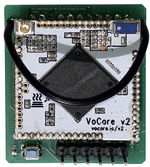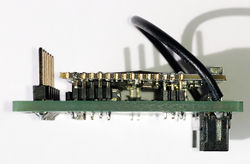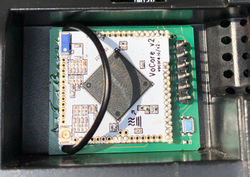Difference between revisions of "Meteobridge NANO"
(Marked this version for translation) |
|||
| (7 intermediate revisions by the same user not shown) | |||
| Line 1: | Line 1: | ||
__NOTOC__ | __NOTOC__ | ||
<languages /><translate> | <languages /><translate> | ||
| − | <br><font color=red size=4>''Meteobridge NANO | + | <!--T:16--> |
| + | <br><font color=red size=4>''NEW: Meteobridge NANO has got a big brother, the [[Meteobridge_NANO_SD]]''</font> | ||
| Line 55: | Line 56: | ||
You also control when data is sent or uploaded. You can send on fixed times, or fixed periodic intervals, or triggered by individually defined events (i.e. when temp or wind is reaching limits defined by you). | You also control when data is sent or uploaded. You can send on fixed times, or fixed periodic intervals, or triggered by individually defined events (i.e. when temp or wind is reaching limits defined by you). | ||
| − | ===Conditions=== | + | ===Conditions=== <!--T:7--> |
[[File:nanoevents.png|550px|right]]Meteobridge NANO can even act on user-defined sensor data conditions and initiate any of the actions mentioned above (like email). Conditions are made up of arithmetic expressions on the available template variables. Having multiple ways to upload and send data, controlled by user-defined conditions gives you an extremely flexible tool to make things happen based on sensor data. | [[File:nanoevents.png|550px|right]]Meteobridge NANO can even act on user-defined sensor data conditions and initiate any of the actions mentioned above (like email). Conditions are made up of arithmetic expressions on the available template variables. Having multiple ways to upload and send data, controlled by user-defined conditions gives you an extremely flexible tool to make things happen based on sensor data. | ||
| Line 82: | Line 83: | ||
===Compliance=== <!--T:12--> | ===Compliance=== <!--T:12--> | ||
Meteobridge NANO is CE and is RoHS conform and is FCC compliant (contains FCC ID 2AC4R-VOCOREV2) and fulfills Open Source obligations of included SW components. | Meteobridge NANO is CE and is RoHS conform and is FCC compliant (contains FCC ID 2AC4R-VOCOREV2) and fulfills Open Source obligations of included SW components. | ||
| + | |||
| + | ===Warranty=== <!--T:17--> | ||
| + | We give 2 years of warranty as the manufacturer. | ||
| + | |||
| + | ===Caveats=== <!--T:19--> | ||
| + | As the NANO does consume electricity it heats up a bit over time and being located in the expansion bay of the console this additional temp is also spread into the console and by that affects the indoor temp sensor of the console. NANO provides an option to compensate for that additional heat by an option on the web interface that also corrects the values displayed on the console itself. Compensation is easy to do but it is of course not perfect but all we can do about this. | ||
| + | |||
| + | <!--T:20--> | ||
| + | While the NANO does send data to tons of services it currently does not feed the Davis Instruments Weatherlink network on its own. | ||
===Availability=== <!--T:13--> | ===Availability=== <!--T:13--> | ||
| Line 89: | Line 99: | ||
Meteobridge NANO Flyer as [http://download.meteobridge.com/files/meteobridge-nano-datasheet.pdf NANO Flyer] | Meteobridge NANO Flyer as [http://download.meteobridge.com/files/meteobridge-nano-datasheet.pdf NANO Flyer] | ||
| − | ===Setup Instructions=== | + | ===Setup Instructions=== <!--T:18--> |
Meteobridge NANO is very easy to setp. You just need a WiFi device like a laptop, tablet, or smart phone: | Meteobridge NANO is very easy to setp. You just need a WiFi device like a laptop, tablet, or smart phone: | ||
[http://download.meteobridge.com/files/meteobridge-nano-manual-en.pdf NANO Manual (English)] | [http://download.meteobridge.com/files/meteobridge-nano-manual-en.pdf NANO Manual (English)] | ||
Latest revision as of 22:30, 7 November 2018
NEW: Meteobridge NANO has got a big brother, the Meteobridge_NANO_SD
A Plug-in Upgrade to Your Davis Instruments® Pro2™ or Vue™ Console
The Meteobridge NANO is a tiny plug-in device that dramatically extends the features of your Davis Instruments® Vantage Pro2™ or Vue™ weather station. The NANO is simply plugged in the expansion connector underneath the cover on the back of the console. When you close the back cover again this upgrade is completely invisible. The NANO adds a full Meteobridge feature set to your weather station setup which includes tons of services you usually need a full PC solution for. The NANO just takes about 1 watt of energy and therefore is dramatically more power efficient than using a PC or even a Raspberry Pi.
Connectivity
The NANO connects as a WiFi client to your WLAN at home and can be administrated by a web browser. That makes it very convenient to work with it, you just sit in front of your browser and do all the settings. Initial setup is done by connecting with a mobile device to the WiFi that the NANO itself does provide. Here you do all the network settings to have the NANO included into your own WiFi. Current encryption standards like WPA2 are fully supported. NANO operated on 2.4 GHz band and supports WiFi modes 802.11 b/g/n.When being included into your WiFi network at home you can decide to have all of its network IP settings received dynamically from your router (DHCP) or to define credentials manually by a static setup. The NANO can even reach out through proxies to the Internet, if those don’t require authentication. The NANO shares with the other Meteobridge products that you can even login for administration when you are away from home. This is simply done by setting the “allow remote login” switch and storing the URL for external access as a bookmark on your traveling browser. You don’t need to fiddle with your firewall or to setup any dynamic DNS service for that. In case your router might give the NANO spontaneously a new IP and you will not be able to reach it in your home network with the IP you have used so far, you just browse to magicip.meteobridge.com and you will be redirected to the current IP in your home network. These advanced network features are making it as convenient as it can be for you to operate the NANO in your home network and when being away from home.
Weather Networks
The NANO supports all weather networks supported by the other Meteobridge solutions. Data uploads to the networks listed below can selected in parallel and can be timed down to every few seconds, if the weather network supports that (like rapid-fire with Weather Underground). Apart from silently uploading data to these networks you also get status information how the uploads were doing. This helps a lot in getting an idea how well your station does feed the networks. NANO does tell you the recent sensor data as received from the Davis weather station and gives you the log when data was uploaded fine or with errors to your weather networks of choice.- Weather Underground
- Weather Underground Camera
- AWEKAS
- CWOP / APRS
- WeatherForYou
- UK MetOffice WOW / WOW NL
- Teere-Net
- Open Weather Map
- Weather Cloud
- Windfinder
- Windguru
- Idokep
- Weatherflow
- Wetter.com
- Previmeteo
- Anything Weather
- Meteonews
- Meteoplug Cloud Graphing
- Meteobridge Weather CAM
- Wetterring
- Weathercloud
- Ambientweather Network
- Agroclima
- Meteoagro Net
Personal Weather Pages
The NANO can feed the popular personal weather templates WD-Live, Leuven Template, Saratoga Template, Meteo Template and Home Weather Station with default scripts. This makes it very easy to setup your personal weather page by using one of the mentioned templates. Many user prefer to have their data presented in the most efficient and versatile way instead of relying on the standard visualization the main Internet weather networks provide as a give-back for uploading weather data.
Uploads / Sending
Beside feeding standard weather networks Meteobridge NANO allows you to push your weather data in short intervals to your own server in the Internet. This can be done by Twitter, FTP, SFTP, HTTP, HTTPS or even by mySQL requests, where you can upload data in an individual way. You can freely define the uploaded content by using template variables. Doing so the NANO does not just provide you current data for upload. You can also make use of min, max or average data of the hour, today, yesterday, month and year. Data can be converted to different units (as often needed for temperature, wind speed, pressure). Timestamps for min/max values are provided as well. All this allows you to upload data in any format you like to your specific post processing platform. You also can send weather data by email or can twitter your data.You also control when data is sent or uploaded. You can send on fixed times, or fixed periodic intervals, or triggered by individually defined events (i.e. when temp or wind is reaching limits defined by you).
Conditions
Meteobridge NANO can even act on user-defined sensor data conditions and initiate any of the actions mentioned above (like email). Conditions are made up of arithmetic expressions on the available template variables. Having multiple ways to upload and send data, controlled by user-defined conditions gives you an extremely flexible tool to make things happen based on sensor data.Remote Access
Meteobridge NANO offers the ability to be reached from the Internet by simply setting a mark on the web interface. Doing so you are provided with an Internet URL where you can reach your Meteobridge NANO. No changes at your firewall and router are needed. It just works, unless you are in a company-grade LAN where packet filtering is applied or other special measures are taken. This feature is extremely helpful when you are on travel or the Meteobridge is located in a remote location and you want to check things or change settings. Your Meteobridge remains protected by the password you gave it.SMS / Twitter
Meteobridge NANO can send individual SMS via service provider „messagebird“. This can be done in regular intervals or triggered by user-defined events. Content of the SMS can include weather data. The NANO is not limited to SMS but also can twitter weather information.Data Logger
Meteobridge NANO connects to your console via serial communication and is handling the authentication needed by the newer versions of the console firmware (aka “green dot” logger). The NANO allows for some calibration of sensor data on an easy to understand settings page. While the NANO is directly making use of the data, it can also be connected by your PC weather program on port 22222 to allow for a direct pass-through to the console. In this mode the NANO acts like a standard Davis logger, but while passing through the data to the PC it also picks the needed pieces of information to feed the services defined in the NANO.Hardware Specification
- size: 35mm x 30mm x 10mm (width x height x depth), fits in to the expansion module compartment at the back of the console under the back cover
- weight: 10g
- up to 300 mA power demand (at 5 V)
- operating temperatures: 0 - 50°C, non-condensing
- WiFi 2.4 GHz, 802.11g/n, internal chip antenna
- VoCore2 CPU board
- Mediatek 7628 AN SOC
- 128 MB RAM / 16 MB flash
- status LED
- reset button
- 6-pin header maintenance port
Compliance
Meteobridge NANO is CE and is RoHS conform and is FCC compliant (contains FCC ID 2AC4R-VOCOREV2) and fulfills Open Source obligations of included SW components.
Warranty
We give 2 years of warranty as the manufacturer.
Caveats
As the NANO does consume electricity it heats up a bit over time and being located in the expansion bay of the console this additional temp is also spread into the console and by that affects the indoor temp sensor of the console. NANO provides an option to compensate for that additional heat by an option on the web interface that also corrects the values displayed on the console itself. Compensation is easy to do but it is of course not perfect but all we can do about this.
While the NANO does send data to tons of services it currently does not feed the Davis Instruments Weatherlink network on its own.
Availability
Meteobridge NANO is available from the resellers listed here.
PDF Datasheet
Meteobridge NANO Flyer as NANO Flyer
Setup Instructions
Meteobridge NANO is very easy to setp. You just need a WiFi device like a laptop, tablet, or smart phone: NANO Manual (English)

